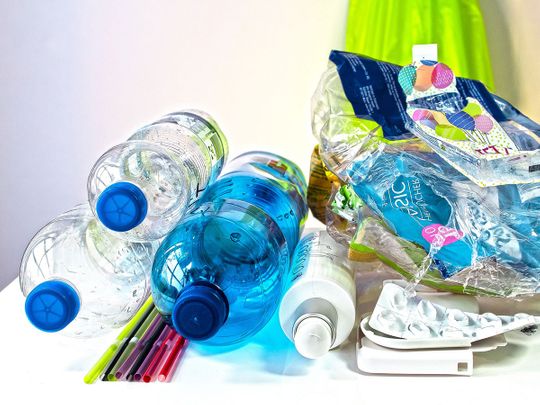
Manila: A barter store in Central Philippines’ Cebu will accept “plastic” but not the credit card type, instead it will take what most people regard as “trash.”
The Plastic Barter Store in downtown Cebu City’s Mabini Street will take plastic discards and pay customers an equivalent amount in useful items such as clothes, food and footwear.
“Yesterday and today I turned in discarded plastic mineral bottles and other plastic items and I was able to get two pairs of pants, a set of rubber flip-flops and a kilo of rice. This is so much better rather engaging in something illegal,” said Proceso, one of the store’s customers, during an interview with the government run PTV4.
Like Proceso, most of the barter store customers are “mangalalakal” or someone who makes a living picking plastic from the streets or trash bins.
Customers who have collected a certain amount of plastic trash are given items such as rubber footwear, canned sardines, used clothing and other similar basic stuff that they can use in their everyday life.
The plastic items that are turned in to the store are used as part of a mixture for building blocks that could be used to construct houses.
The concept is not new in the Philippines as there are other stores that use the same business model of accepting trash in exchange for goods.
In Cauayan City in northeastern Philippines’ Isabela province, officials in a village have started their own plastic barter scheme called “Basura mo, Papalitan ng Bigas D2” (Trash for Rice).
Aside from encouraging the residents to trade in their plastic wastes, the project also aims to teach locals proper waste segregation.
Two kilograms of plastic bottles or three kilograms of assorted plastic or one kilo of plastic wrappers can be exchanged for a kilo of rice.
“Our programme has been very effective in alleviating the problem of waste in our village. The business establishments surround the area and the people here have been learning to segregate wastes such as plastics and bottles. Aside from that, poor-but-industrious villagers who need rice to cook have nothing to worry,” village chair Paolo Eleazar Delmendo said.
The trash redemption concept will go a long way in addressing the country’s problem on plastic wastes.
Environmental groups such as the Ocean Conservancy and the McKinsey Centre for Business and Environment said that in 2015, the Philippines ranks third as the third largest ocean polluter of plastics, contributing 2.7 million tons annually.
According to Joel Palma, chief executive officer of the World Wide Fund For Nature (WWF) - Philippines, said the Philippines problem with plastic pollution needs to be addressed at the soonest as the plastic waste generated by the country is projected to almost double by 2025.











